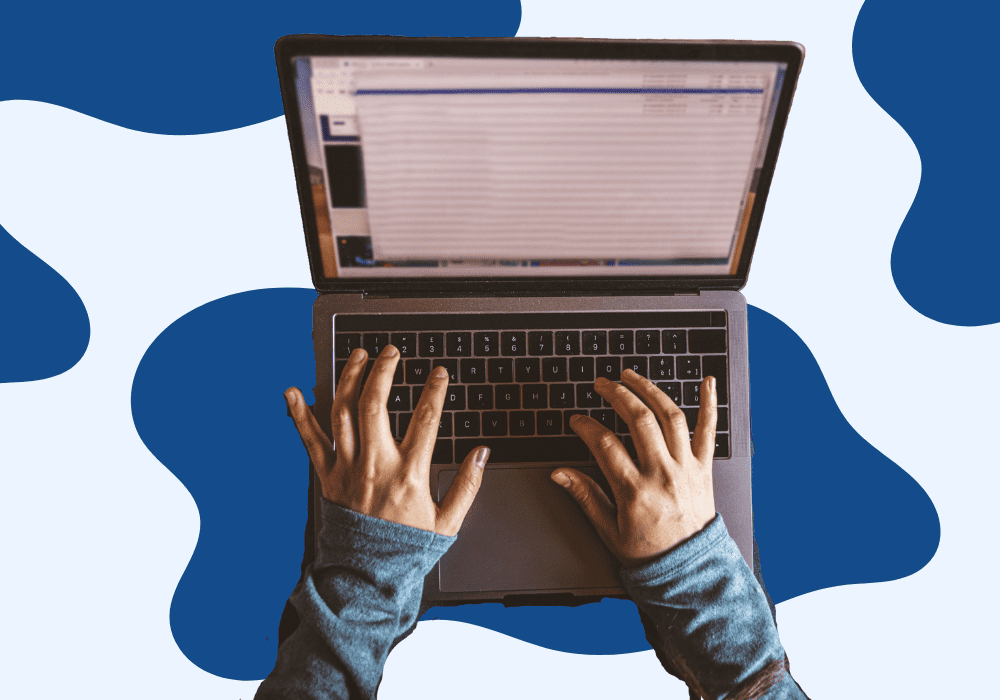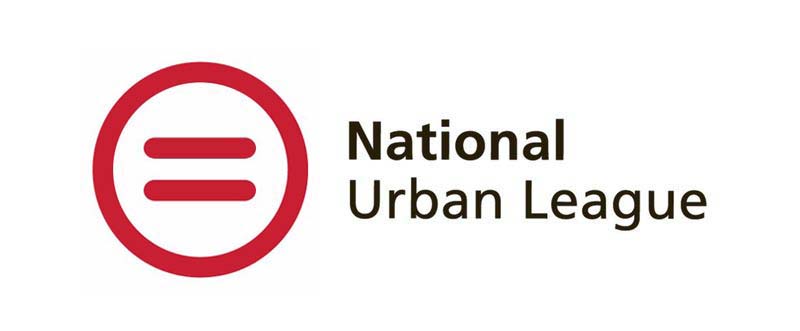You’ve done the hard work of writing a professional email, and now it’s time to figure out how to end it. Knowing how to end an email professionally is crucial for writing clear, actionable emails that leave your recipient with a positive impression. This guide will walk you through how to end an email professionally, from ways to send an email and best and worst email sign-offs to what your email signature should include.
What Are Email Endings?
An email ending is what it sounds like: the way you end an email! There are three main components of email endings.
- Closing phrases: The phrases you use to summarize your email before you officially sign-off.
- Sign-off: The word or couple of words you use before you include your signature.
- Email signature: Your name, and sometimes additional personal information.
So how exactly do you end an email? Let’s look at best practices for each part of an email ending.
Professional Ways to End an Email: Closing Phrases
Professional email closing phrases are the sentences you use before officially signing off the email. These phrases should restate and clarify the purpose of your email and end with a call to action.
“Whether I’m emailing a prospect to get a meeting or emailing a recruiter to get an interview, I want to be sure that the reader understands exactly what the next step I’d like them to take is,” Otis Perry, business development representative at Forage, says.
>>MORE: How to Find and Reach Out to Recruiters on LinkedIn
The recipient should know exactly what to do next after reading your email, whether sending you times to meet, reviewing a document, or telling you the next steps.
Professional Email Closing Phrases Examples
- Thank you so much for connecting! I look forward to speaking with you on [date and time].
- I’ve sent over [materials you discussed]. Please review by [date] and let me know if you have any questions.
- Thank you again for meeting with me today. I look forward to learning about the next steps of the interview process.
- I look forward to joining the team! I’ll see you for my first day on [date].
- Thank you again for giving me more information about the opportunity! I’ve attached my resume and will contact you by [date] to follow up if I haven’t heard from you by then.
- Please let me know if you have any questions by replying to this email or reaching out to me on Teams.
- I look forward to reading your responses in the attached sheet below on Friday. I’ll be in touch about next steps the following week.
Professional Ways to End an Email: Email Sign-Offs
You’ve come up with the longest part of the end of your professional email — next, you’ll decide how to sign off an email. While some people have strong opinions about which email sign-offs they prefer, you can’t go too wrong as long as you choose something professional that suits the context of your email.
“I always say ‘thank you so much for your time,’ or ‘thanks in advance’ if the purpose of my email was to ask questions or if I’m providing instructions on a project to someone,” sats Daniela Camejo Sanchez, senior writer at WriterArmy, a content production agency. “Expressing gratitude and kind regards is always a good idea!”
Formal Email Sign-off Examples
Formal email sign-offs concisely wrap-up the email professionally without being too familiar.
- Sincerely
- Best
- Kindly
- Regards
- Warm regards
- All the best
- Thank you
- Thank you in advance
Casual Email Sign-Off Examples
Wondering how to sign an email more casually? If you’re emailing someone at work who you have a fairly casual relationship with, there are still options for keeping it professional with a casual tone. Casual email sign-offs — that are still appropriate for the workplace — include:
- Have a great day
- Stay tuned
- Cheers
- Take care
- Talk soon
- Onwards and upwards!
- Looking forward to hearing from you
- Thanks
Inappropriate Email Sign-Offs
There are a few professional email sign-offs to avoid, most of which are too casual or inappropriate for the workplace. Examples of these include:
- Love
- Thx
- Yours
- Yours truly
- XO
- Peace out
- See ya
- ✌️ (or any other emoji)
What to Include in a Professional Email Signature
After you’ve signed off, you want to include your name and, depending on who you’re talking to, a few additional details. For example, if you’re speaking with a recruiter or a networking connection, you may want to share additional contact information and a link to your website. Besides your name, you may consider including:
- Your current title
- Your university and graduation year (if you’re a student)
- Your phone number
- Your email address
- Your location
- A link to your website or online portfolio
- A link to your LinkedIn or other professional social media accounts
What Tone Should You Use When Ending a Professional Email?
To determine what tone to use at the end of your professional email, Camejo Sanchez says it’s all about knowing who you’re communicating with.
“Especially if this is the start of a conversation with a person you don’t know, do your research,” Camejo Sanchez says. “Ask yourself, how do they present themselves professionally? What is their personal brand like? Do they seem like they value formal exchanges over more casual ones, or vice versa? You can tell a lot about a person by reading a few professional posts they’ve shared online.”
Yet no matter who you’re emailing, Perry says to remember there’s a human behind the email, too.
“I often try to dance the line between a formal and casual tone,” he says. “I definitely want to be respectful and not say anything that may offend or disengage the reader. However, I want to humanize my email as much as possible and communicate in a conversational tone so it’s easier for readers to digest.”

Introduction to Law
Write an email to a client that summarizes key findings, shares additional information on relevant topics, and suggests solutions.
Avg. Time: 8-9 hours
Skills you’ll build: Email drafting and communication, attention to detail, critical thinking
How to End an Email Professionally: Examples
Now that you know what to write in a closing phrase, have your sign-off ready to go, and have nailed your signature, you know how to end your email professionally. Here are a few email examples for everyday work situations, from job search to team collaboration.
In a Networking Message
I’d love to connect over the phone to learn more about the position. Are you available anytime next Monday, January 2nd, from 9 a.m. to 3 p.m. MST? You can reach me at (123) 456-7890.
Best,
Charlotte Smith
Example University Class of 2026
(123) 456-7890
>>MORE: Sent the message? Now learn how to prepare for an informational interview.
After a Phone Screening
Again, thank you so much for taking the time to speak with me today. I’ve attached my resume and online portfolio for your review. I look forward to hearing from you soon — I will follow up on [date] if I haven’t heard from you by then.
Thank you,
Michael Johnson
https://www.linkedin.com/in/michael-johnson-1
After an Interview
Thank you again for your time today. If you have any additional questions, please do not hesitate to reach out. I look forward to hearing from you and will follow up on [date] if I don’t hear from you by then!
Sincerely,
Isabella Rodriguez
Data Analyst
Brooklyn, NY
>>MORE: How to Follow Up on a Job Interview in 2024 (With Example)
When Accepting a Job Offer
Thank you so much for the opportunity, and I look forward to working with you soon! I’ll see you on October 2nd in the New York office.
Cheers,
Shayna Coleman
(098) 765-4321
Collaborating With a Coworker
Please let me know if you have any questions. I’m happy to jump on a call or discuss this further in Slack!
Best,
Caitlin Imler
Program Strategist
Los Angeles, CA
Sending an Update to Your Team
Please review the above and let me know if you have any questions or feedback by [date]. Looking forward to hearing from you!
Best,
Lucy Grose
Chief of Staff, Company Z
Madison, Wisconsin
Working With a Client
I’m confident our approach can drive the brand awareness results you’re looking for. Please let me know if you have any questions about the proposal, which I’ve attached below; I’m happy to answer via email or in a follow-up call.
Thank you,
Fiona
Customer Success Manager
[email protected]
(145) 321-456
Following Up After a Meeting
Thank you again for your attention and engagement during today’s presentation. In addition to the action items I’ve outlined above, I’ve attached the slides for further reference. Please let me know if you have any questions.
Best,
Julia
Senior Designer, Company X

Strategy Consulting
Meet with a hypothetical client to learn about their sales challenges, then write an email summarizing your findings to your manager.
Avg. Time: 4-5 hours
Skills you’ll build: Client communication, business knowledge, professional communication, business judgement
How to End an Email Professionally: The Bottom Line
When figuring out how to end an email professionally, ensure that your writing is clear, actionable, and gives all the information the reader needs to take next steps. That doesn’t mean you need to be devoid of humanity or empathy. Remember, there’s another person behind the screen.
“Try to avoid being demanding or assumptive when asking for someone’s time or energy in your emails,” Perry says. “I think it’s important to communicate from a confident yet humble place.”
Learn more professional email tips:
- How to Respond to a Job Interview Email (With Examples)
- How to Accept a Job Offer (With Examples)
- How to Write a Job Interview Thank You Email (With Template)
- How to Write a Thank You Email After a Zoom Interview
FAQs
You can politely end an email with a professional, actionable closing phrase, an email sign-off, and a signature. Examples of polite email sign-offs include “sincerely,” “best,” “kindly,” and “regards.”
The best email sign-offs are professional and not too familiar, including “sincerely” and “thank you” for more formal emails and “stay tuned” and “cheers” for more casual work emails.
The end of a professional email should include an actionable closing statement, a polite sign-off, and a signature.
Image credit: Canva

